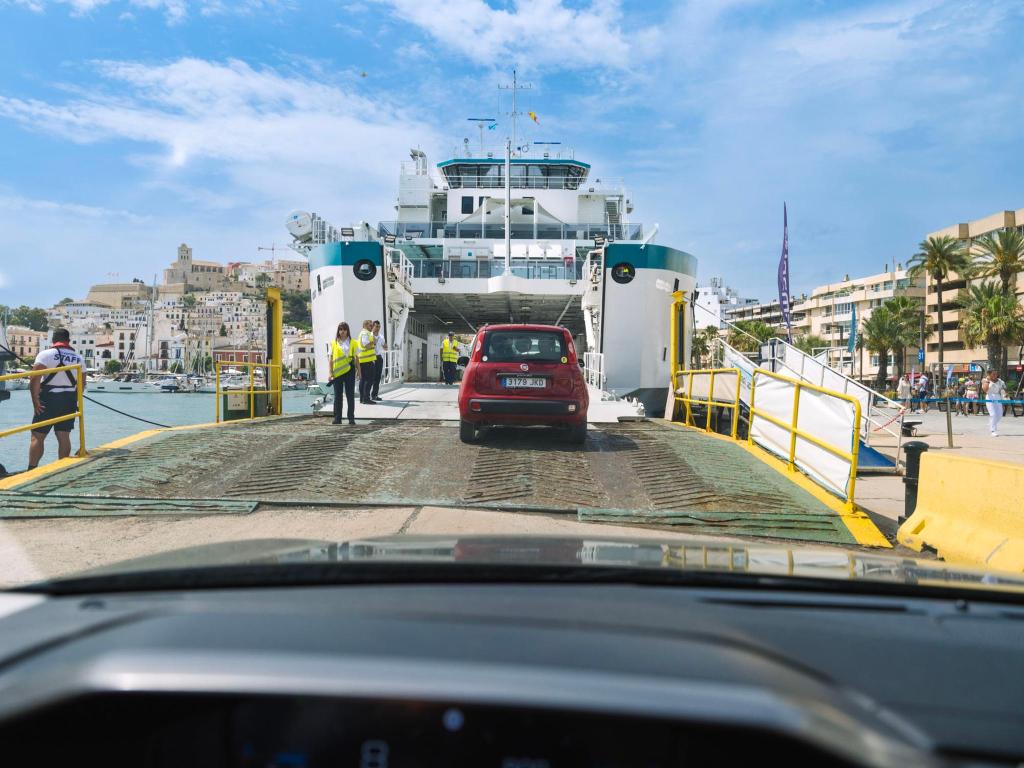
Essential Tips for Smart Car Rental Decisions
Make your next car rental experience smoother with these key insights:
- Understanding rental policies, insurance options and documentation helps you avoid unexpected costs.
- Taking photos and noting your vehicle's condition before driving gives you peace of mind.
- Checking your existing insurance coverage through credit cards or personal policies helps you make informed decisions about additional protection.
Renting a car should be straightforward, but some rental companies use various tactics to increase your costs. Here's what you need to know to protect yourself and avoid unnecessary charges.
1. Understanding vehicle condition documentation

One of the most common issues renters face is disputes over vehicle damage. A common situation you might face is being charged for damage that existed before your rental period or for minor wear and tear that shouldn't be considered damage.
Staff might rush through the initial inspection, especially during busy times, leaving pre-existing damage undocumented. Common trouble spots include windshield chips, wheel rim scratches, undercarriage damage, and door dings. Some companies may charge for normal wear items like stone chips in the paint or minor scuffs on bumpers.
The most problematic situations often arise when damage is claimed after you've left the return location. Without proper documentation, you might find yourself dealing with damage charges weeks later, when it's impossible to dispute the timing of the damage.
To protect yourself, thoroughly inspect the entire vehicle before driving off. Check all panels, bumpers, windows, wheels, and interior surfaces. Pay special attention to commonly overlooked areas like the roof, side mirrors, and wheel wells. Take detailed photos and videos of any existing damage, no matter how minor, and ensure everything is noted on the rental agreement with a staff member's signature. Repeat this documentation process when returning the vehicle, and always get a signed confirmation that the car was returned without new damage.
2. Understanding fuel policy options

Fuel policies can be a source of hidden costs if you're not careful. Some companies use confusing policies or charge premium rates for refueling.
Some companies have been known to charge inflated rates per gallon if you return the car without a full tank – sometimes even 2–3 times the local gas station rate. Some offer a "prepaid fuel" option that requires you to pay for a full tank upfront, regardless of how much fuel you actually use. This means you're paying for fuel you won't use unless you return the car completely empty.
Different rental locations may interpret fuel gauge readings differently. A tank that appears ‘full’ at pickup might be deemed ‘7/8 full’ upon return, resulting in unexpected charges. Some companies even require receipts from gas stations within a specific distance of the return location to prove you've properly refueled.
To avoid these charges, always understand the fuel policy before accepting the keys. Take photos of the fuel gauge at pickup and return, and fill up at a nearby gas station before returning the vehicle. Keep your final fuel receipt as proof of refueling, and avoid prepaid fuel options unless you're certain you'll return the car empty. Make sure to note which side the fuel door is on before heading to the gas station for your final fill-up.
3. Be aware of potential mileage limits

While unlimited mileage is common, some rental companies use mileage restrictions to generate additional revenue. These limits may be easy to miss in the contract's fine print, or companies might offer lower base rates but add high per-mile charges.
Some companies apply different mileage restrictions based on state or provincial boundaries. For example, you might have unlimited mileage within one state but face charges for crossing state lines. Others advertise "unlimited" mileage but include geographical restrictions that trigger fees if violated.
To avoid surprises, always read the mileage terms before booking and calculate your expected mileage. Take photos of the odometer at pickup and return, and consider unlimited mileage options for longer trips. Some companies use GPS tracking to verify exact mileage, so keep track of your own readings during the rental period. If you're planning to cross state lines or country borders, specifically ask about any related restrictions or fees. Be extra careful with mileage limits on one-way rentals.
4. Understanding car class options

The upgrade pitch is a common sales tactic that can significantly increase your rental costs. Staff may mention that your reserved car category is unavailable or suggest your luggage may not fit in your booked vehicle. These upgrades are often presented as small daily increase which can make the total cost seem less noticeable.
Common upgrade strategies include:
- Showing you to a premium vehicle while preparing your reserved car
- Mentioning upcoming weather conditions that supposedly require a larger vehicle
- Emphasizing the safety features of more expensive models
Remember that many companies must provide a free upgrade if your reserved vehicle category isn't available. Stick to your original reservation unless you truly need an upgrade, and always calculate the total cost difference, not just the daily rate increase. Book the vehicle size you actually need from the start, rather than the smallest option.
5. Know if you need a prepaid toll service

Toll payment programs can be another source of unnecessary expenses if you're not careful. Some companies may charge daily fees for toll services, even on days you don't use tolls, and may mark up the actual toll costs beyond standard rates.
Many rental companies now charge a processing fee for each toll incurred if you don't opt into their toll program, which can turn a small toll into a much larger charge. Some programs require you to pay for the entire rental period even if you'll only use toll roads on one day.
Before accepting any toll service, research toll roads on your planned route. Consider bringing your own toll transponder or using mobile toll payment apps for your destination. Keep toll receipts if you pay cash, and look into routes that avoid toll roads altogether. The rental company's toll service might be convenient, but it's rarely the most cost-effective option.
6. Know what's included in your rental price

Beyond the base rental rate, companies often add numerous fees that can significantly increase your total cost. These charges may not be obvious during the booking process but can add up quickly.
Airport location fees can add additional fees to your rental cost. While these fees are partly imposed by airports, some companies inflate them beyond the required amount. Consider renting from an off-airport location if the savings outweigh transportation costs.
Additional driver fees can range from $10–15 per day per driver. Some companies waive these fees for spouses or domestic partners, but policies vary. Age-related fees for drivers under 25 (or sometimes even under 30) can add $25–35 per day.
Other common hidden charges include:
- Energy recovery fees
- Vehicle license recovery fees
- Facility maintenance fees
- Convention center fees
- Tourism fees
Always read the fine print during booking and ask for a breakdown of all fees before signing the contract. Some fees are negotiable or can be avoided by joining the rental company's loyalty program.
7. Deposit and credit card holds

Rental car companies typically place a hold on your credit card that can significantly exceed the estimated rental cost. These holds can affect your available credit and cause issues with other planned expenses during your trip.
Hold amounts vary significantly by company, location, and rental type. Premium vehicles may require a larger hold. These holds can remain in place for several days after returning the vehicle, sometimes up to two weeks.
Most companies strongly prefer credit cards over debit cards. Using a debit card often requires additional requirements. Some locations won't accept debit cards at all, while others place larger holds on debit cards that can tie up your bank account funds.
To prepare yourself:
- Ask about hold amounts before booking
- Use a credit card with a sufficient limit above your expected rental cost
- Consider using a separate credit card for the rental to keep other travel funds available
- Check your card's available credit after returning the vehicle to ensure the hold is released
By staying informed about these common rental car situations and preparing accordingly, you can avoid unnecessary charges and have a smoother rental experience. Remember to always read the rental agreement carefully, document everything with photos, and don't be afraid to ask questions about anything that seems unclear. A few minutes of preparation can save you from hours of hassle and unexpected expenses later.

- 航空公司奖励
- 飞行小贴士
- 冒险之旅
- 豪华型旅行
- 旅居
 What Is an ‘SUV’ in Car Rental?2025年4月2日
What Is an ‘SUV’ in Car Rental?2025年4月2日 7 Airline Business Classes Compared2025年3月31日
7 Airline Business Classes Compared2025年3月31日 Can I Take My Hire Car on a Ferry?2025年3月28日
Can I Take My Hire Car on a Ferry?2025年3月28日 What Is a Fuel Policy?2025年3月28日
What Is a Fuel Policy?2025年3月28日 Car Rental Reviews: How Reviews Help You2025年2月14日
Car Rental Reviews: How Reviews Help You2025年2月14日 5-Minute Guide: Driving in the US2024年12月28日
5-Minute Guide: Driving in the US2024年12月28日 7 Easy Ways to Save Money on Car Rental2024年12月27日
7 Easy Ways to Save Money on Car Rental2024年12月27日 How to Rent a Car for Your Ski Trip2024年12月27日
How to Rent a Car for Your Ski Trip2024年12月27日 The Complete Guide To Airline Food2024年12月27日
The Complete Guide To Airline Food2024年12月27日 How Old Do You Have to Be to Rent a Car?2024年12月26日
How Old Do You Have to Be to Rent a Car?2024年12月26日
猜你喜欢
Learn more about the types of rental cars available when planning a vacation.
Your complete guide to understanding car rental fees, policies and optional add-ons to help you make informed choices.
Avoid common car rental pitfalls with our guide to the top 10 rental fails. Learn why people don't get their hire cars and how to ensure a smooth pickup.
Planning to choose an 'SUV' for your next rental? Get a clearer view of what an 'SUV' is with our handy guide.
How to avoid additional GPS/Sat Nav costs by using offline maps during your rental period.
Can I take my hire car on a ferry? Find out how to travel on a ferry with rental cars, the costs and ferry regulations for rental cars.




















